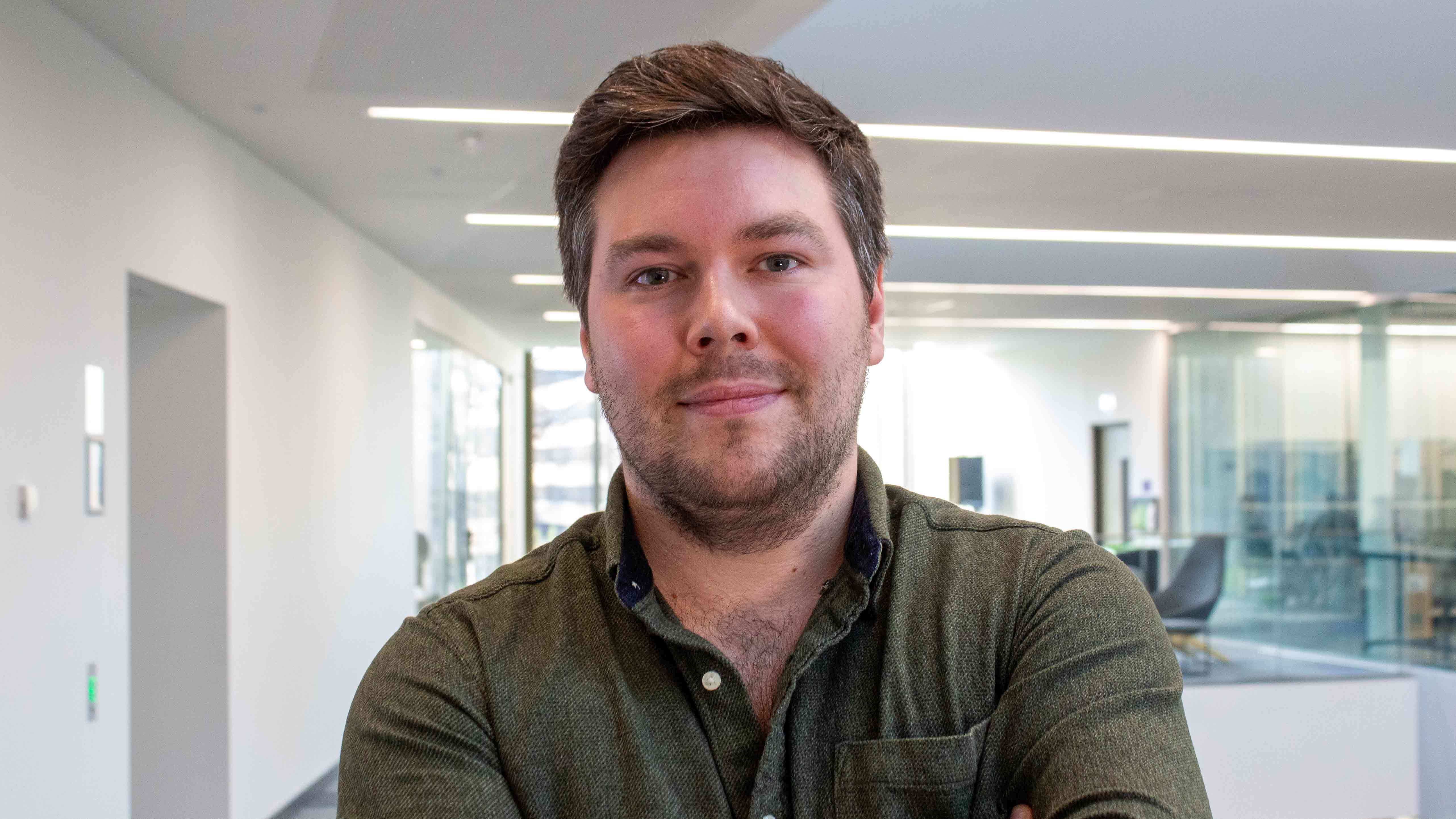Published:

A researcher at Heriot-Watt University has been awarded almost £1 million in funding to develop a mass manufacturing process for a type of hyper-fast optical fibre that could eventually replace conventional telecoms networks.
Dr Calum Ross, a Research Associate in Heriot-Watt's School of Engineering and Physical Sciences, has secured the funding award of £970,000 through the Future Leaders Fellowships programme of UK Research and Innovation (UKRI) – the UK's national funding agency for investing in science and research.
Future Leaders Fellowships aim to develop talented early career researchers and provide long-term support to tackle ambitious programmes.
For the next generation of technologies in artificial intelligence and augmented reality, we need very fast data transfer speeds to deliver applications in real-time.
Dr Ross has spent two years developing an automated process that would allow the mass production of hollow-core fibre – a type of optical fibre that carries light in air about 50% faster than conventional solid glass optical fibre.
“Hollow-core fibre is currently made using a manual process that involves stacking fibre systems by hand – so it can't be manufactured at scale,” Dr Ross explains. “I've developed a laser-based fabrication approach that is automated and allows me to make a fibre that can be mass manufactured and can also have any internal structure.”
This ‘freeform' hollow-core fibre offers significantly higher data transmission speeds than conventional optical fibre and has many applications in industries including telecoms, healthcare and manufacturing.
“For the next generation of technologies in artificial intelligence and augmented reality, we need very fast data transfer speeds to deliver applications in real-time,” Dr Ross explains. “This needs low-cost fibre that is tens of kilometres in length – and that's currently just not possible with hollow-core fibre.”
Dr Ross believes the system he is developing could supersede the conventional method of making optical fibre in the future, and that hollow-core fibre could eventually replace all conventional telecoms networks used around the world.
The UKRI funding will allow Dr Ross to recruit a postdoctoral researcher – a professional researcher – and a team of PhD students. Over the four-year project, the team will aim to develop their manufacturing process and establish a group of researchers who are pioneering the field of freeform fibre optics. The Future Leaders Fellowships scheme also has an optional three-year extension.
Industry partners in the project include telecoms company BT and laser company Chromacity, a spin-out from Heriot-Watt University in 2013.
Recent industry developments include software company Microsoft buying a hollow core fibre company in 2022 that was a spinout from the University of Southampton and was valued around £20 million.
Dr Ross is conducting his research at Heriot-Watt's Institute of Photonics and Quantum Sciences, which is part of the University's School of Engineering and Physical Sciences.
Since 2018, UKRI has awarded almost 500 fellowships under the scheme. In this latest seventh round of the programme, 75 researchers at different universities and organisations are being awarded Future Leaders Fellowship awards worth £101 million.
UKRI has also confirmed another two further upcoming rounds of more than £100 million each, with deadlines expected in summer 2024 and 2025.
UKRI Chief Executive, Professor Dame Ottoline Leyser, said: “UKRI's Future Leaders Fellowships provide researchers and innovators with long-term support and training, giving them the freedom to explore adventurous new ideas, and to build dynamic careers that break down the boundaries between sectors and disciplines.
The fellows announced today illustrate how this scheme empowers talented researchers and innovators to build the diverse and connected research and innovation system we need to shorten the distance between discovery and prosperity across the UK.”